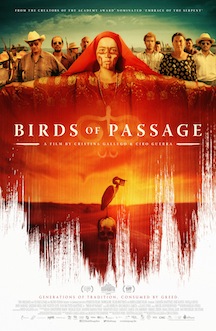Direction: Beatriz Seigner
Country: Brazil / Colombia / France
Los Silencios, the sophomore feature film by Brazilian writer/director Beatriz Seigner, is a conscious refugee tale and a saddened look into war, loss, forgiveness, and relocation, all wrapped in political package.
The occurrences take place in an interesting milieu, a tiny swamped Amazonian island located at the border of Brazil, Colombia and Peru, which doesn’t really belong to any of these countries. Amparo Gomez (Marleyda Soto) had been living in San Martín, in the interior of Colombia, with her guerrilla-supporter husband, Adão (Enrique Diaz), and their two children, the effusive Fabio (Adolfo Savilvino), 9, and the speechless Nuria (María Paula Tabares Peña), 12.
After her husband went missing in the battle against the oppressive Colombian paramilitary, she was threatened to death and ultimately resolved to flee to the cited island, where aunt Abuelita (Doña Albina), is waiting for them. The latter puts a word in her favor to the president of the island (Heider Sanchez) since she dwells there for 20 years. However, he is more interested in making business with greedy rich men than sheltering another refugee. The islanders are furious because the government wants them to sell their houses for a very low price in order to build a casino and a resort. Whether in big cities or small towns, this is a recurrent situation that keeps contaminating our society. The story increases the enigmatic tones when Adão arrives on the island. Is he real or a ghost?
Despite occasionally veiled with haziness and bringing no nuance to the lukewarm ambiance, the film is observant, compassionate, and holds up the longer you analyze it. The blend of gritty, sad realism and otherworldly connection has proved substantial.




























































